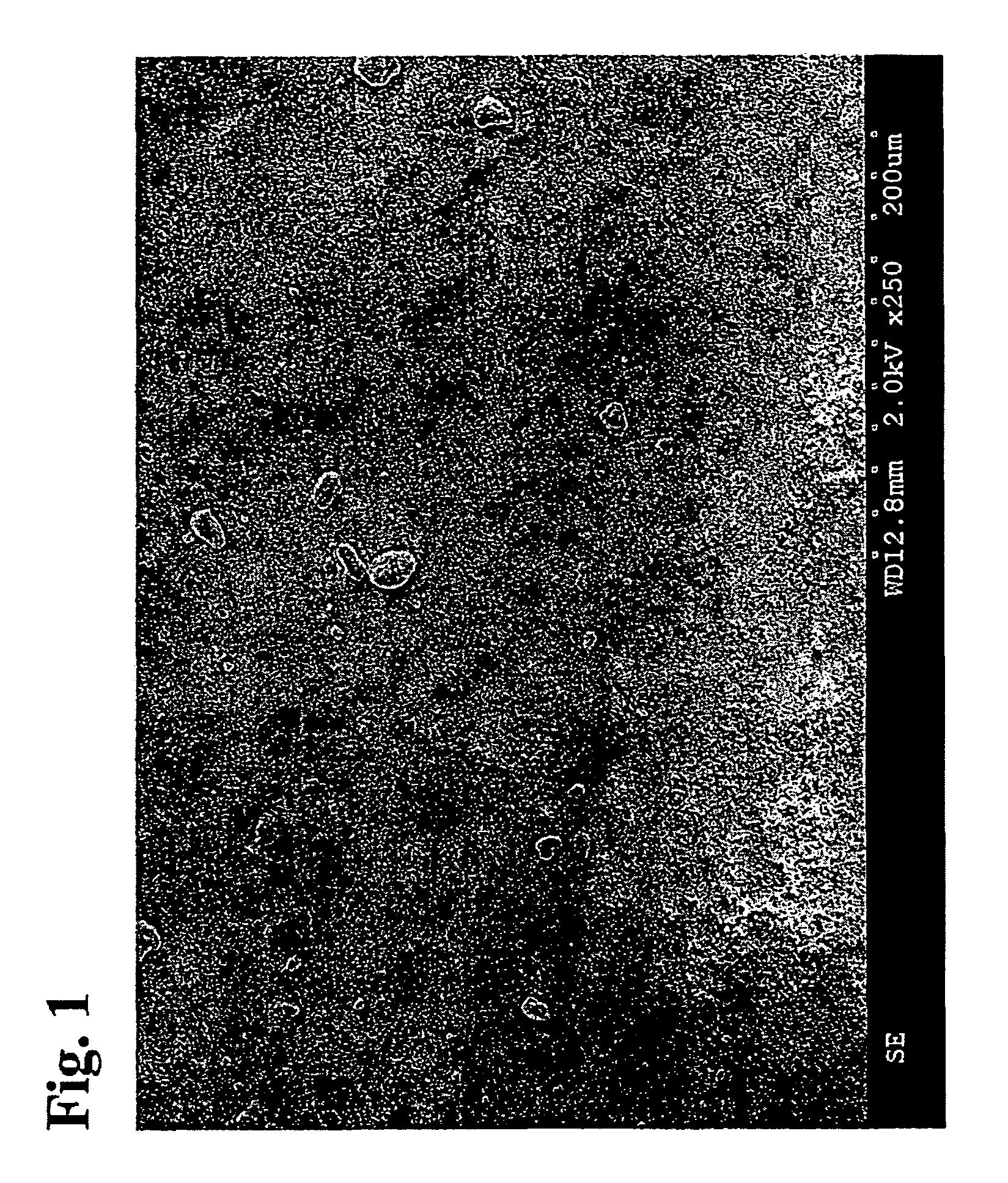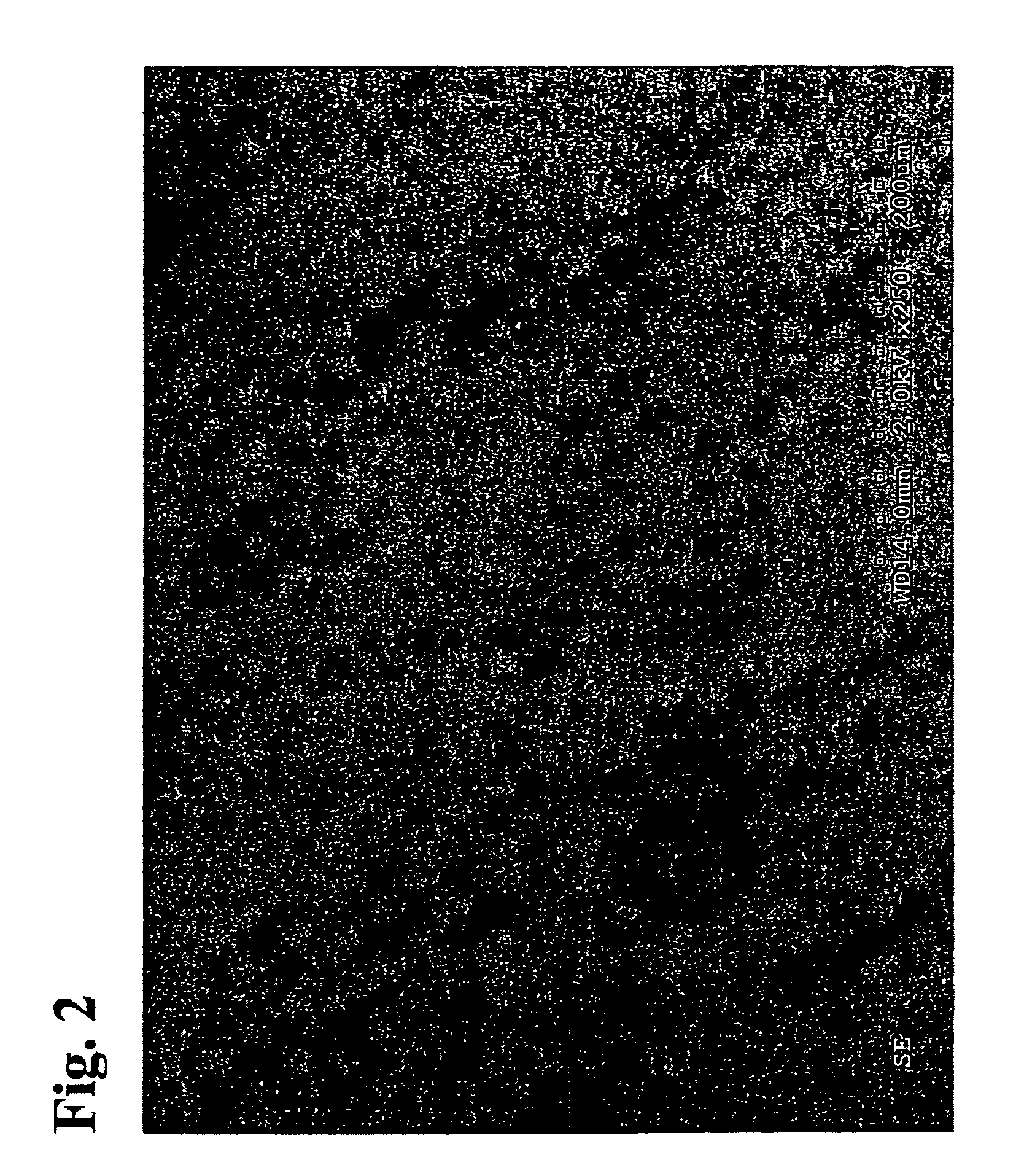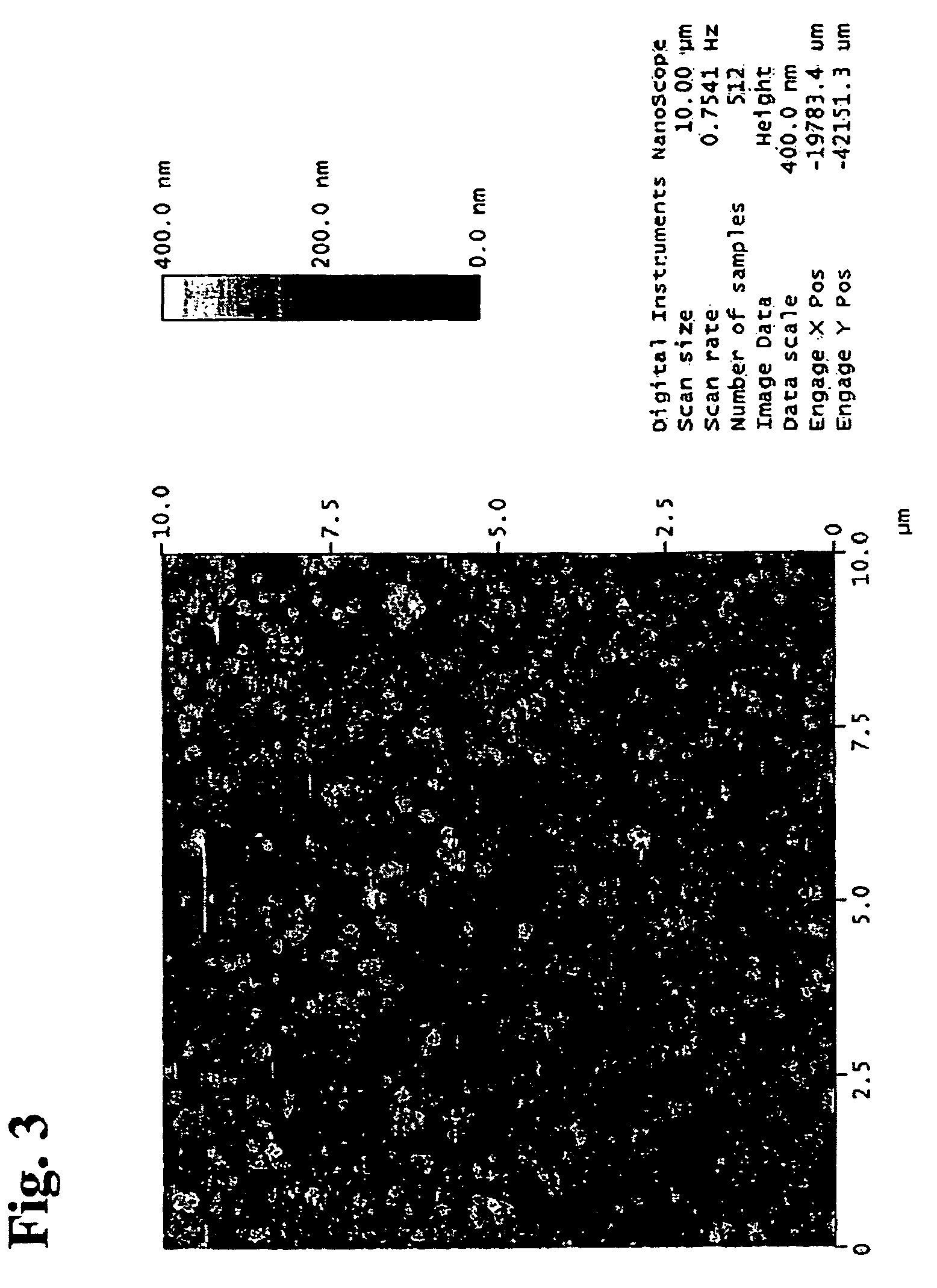Processing compositions and method of forming the same
a technology of composition and processing method, applied in the direction of silicon oxide, silicon compounds, coatings, etc., can solve the problems of loss of self-cleaning effect, structure that renders the surface self-cleaning, and difficulty in achieving the effect of good durability
- Summary
- Abstract
- Description
- Claims
- Application Information
AI Technical Summary
Benefits of technology
Problems solved by technology
Method used
Image
Examples
examples
Process Compositions
[0167]Examples A through OO in Table 1 are representative embodiments of materials prepared in the form of process compositions according to the processes of the present invention. Example H is a comparative example prepared in a manner outside the scope of the present invention.
example a
[0168]A quantity of 10.0 g of hexamethyldisilazane (DYNASYLAN® HMDS) was dissolved in 140 g of decamethylcyclopentasiloxane (TEGO® Polish Additiv 5, also designated as siloxane “D 5”). 50.0 g of a commercially available, hydrophobized fumed silica with a BET surface area of 220 m2 / g (AEROSIL® R 812 S) was slowly dispersed in this solution with gentle stirring at 2,000 r.p.m. After all fumed silica had been added, the mixing speed of the Dispermat (single rotating shaft, outfitted with saw-tooth blade proportional to mixing vessel where blade is half the diameter of vessel) was increased to 10,000 r.p.m. and kept operating at this speed for 15 min.
examples b -
Examples B-OO
[0169]Preparation of examples B through OO follows the same procedure as for example A except using otherwise specified parameters as shown in Table 1 below.
[0170]
TABLE 1TEGO ®Particle SizeProcessAEROSIL ®DYNASYLAN ®PolishStirrerDistribution(1)CompositionR 812 SHMDSAdditiv 5speedTime(median)Examplewt. %wt. %wt. %r.p.m.min.nanometerInventiveA25.05.070.010,00015304B25.00.574.510,0005283C25.05.070.0 5,00051,925D25.00.574.5 5,000152,115E25.00.574.5 5,00052,106F10.05.085.0 5,000(2)153,328G10.00.589.5 5,000(2)53,771OO17.52.7579.75 7,500(2)102,851ComparativeH5.0—93.0(3) 5,000(2)1541,265(1)Particle size distribution analysis was performed with a Horiba LA 910 (use of 1.0 micron polystyrene dispersion as calibration standard, measurement of sample dispersions diluted with isopropyl alcohol and with Relative Refractive Index = 1.10). This instrument measures the size and distribution of particles suspended in liquid using laser diffraction.(2)Examples F, G, H and OO were unable t...
PUM
| Property | Measurement | Unit |
|---|---|---|
| particle size | aaaaa | aaaaa |
| particle size | aaaaa | aaaaa |
| particle size | aaaaa | aaaaa |
Abstract
Description
Claims
Application Information
 Login to View More
Login to View More - R&D
- Intellectual Property
- Life Sciences
- Materials
- Tech Scout
- Unparalleled Data Quality
- Higher Quality Content
- 60% Fewer Hallucinations
Browse by: Latest US Patents, China's latest patents, Technical Efficacy Thesaurus, Application Domain, Technology Topic, Popular Technical Reports.
© 2025 PatSnap. All rights reserved.Legal|Privacy policy|Modern Slavery Act Transparency Statement|Sitemap|About US| Contact US: help@patsnap.com



